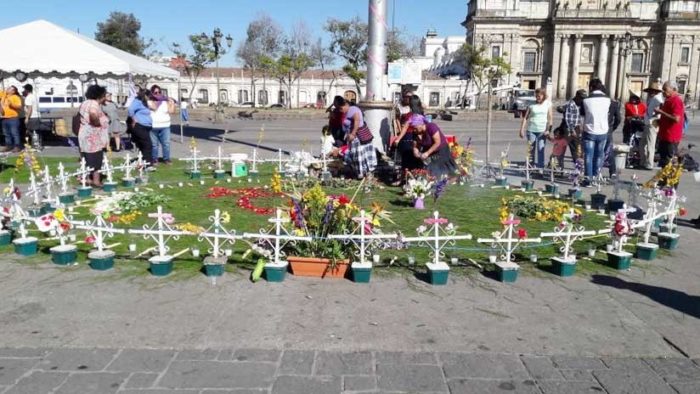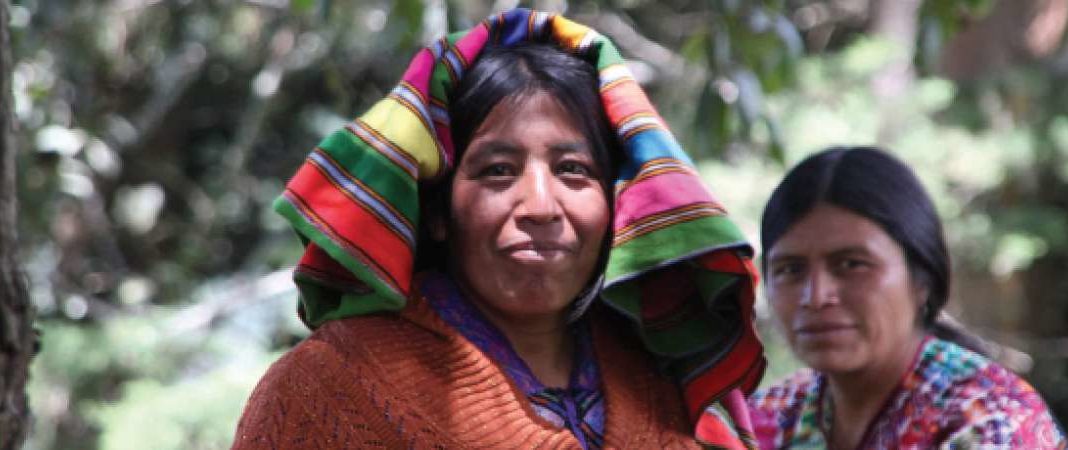The 8th March is celebrated as International Women’s Day. However, in Guatemala for the past three years, the day has been a painful reminder of the long road towards gender equity, and the potentially lethal consequences of continuing misogynistic and violent attitudes towards women.
On this day three years ago, 41 girls and young women died by asphyxiation and fatal burns in a fire in the State-run children’s home Hogar Seguro Virgen de la Asunción in the country’s capital, which also left 15 people injured.
The victims were considered rebels or destabilizers following their attempt to escape from the Hogar. They had reported violations of their rights, including undignified treatment and sexual violence. As a result of their escape attempt, the girls and young women were locked in a room measuring 7 x 6.8 metres for a whole night, without water, food, or toilet facilities. In an attempt to force the policewomen in charge to open the door, they set fire to one of the mattresses in the room. Nevertheless, the staff refused to open the door immediately, a refusal which was to have fatal consequences.
The victims were supposedly under State protection, therefore the negligence in this case could be considered a crime against humanity, and the locking up of the girls and young women as torture. According to Edgar Pérez from the Human Rights Law Firm (Bufete de Derechos Humanos) who is currently litigating in the case, ‘I think that the case is transcendental as it shows the State’s abandonment of children in general… it reflects that lack of real care in these centres. They have turned into centres for corruption.’ Pérez also considers that childhood is being turned into an instrument of corruption, and he highlights the fact that the abuses in the Hogar had been publicly reported.
Many of the girls and young women had arrived at the Hogar after having been victims of other violations of their rights in their home environments: they were under the State’s charge because they had suffered sexual or domestic violence, or they had had run-ins with the law. Nevertheless, following a review of social media carried out by the columnist Marielos Monzón, even after the fire the girls and young women were negatively labelled as conflictive: ‘gangsters’, ‘delinquents’, ‘the dregs of society’.

However, this type of treatment is not limited only to women, young women and girls from the most vulnerable groups of Guatemalan society, but rather it permeates all levels and in all environments.
The judge from the Series Crimes Circuit D Court, Erika Aifán, considers that in Guatemala examples of misogynistic and femicidal violence are normalised
In family problems we often see that people come to tell us that fights between husband and wife are frequent and are normal. So, we normalise the process. And that means that we need to try to make people understand that violence is not normal, in any context, and even less so in a sentimental relationship.
Judge Erika Aifàn
Despite the risks that the home can represent for women (especially in a context in which violence is normalised), this environment continues to be seen as the ‘natural’ place for women.
Even women who have achieved considerable success in their academic and professional careers can tell of personal experiences related to this prejudice. In an interview in 2019, the judge Erika Aifán spoke of several points in which she was discriminated against for being a woman. On one occasion, she heard, from the other side of some shutters in a courtroom, the reaction of two male lawyers upon hearing that the judge was a woman:
‘One said “They say that now a woman has been appointed… What were they thinking appointing a woman to this courtroom?” And the other one replied, “Yes, the women should be in the Family Court, what were they thinking putting her in the penal court?” The first one responded “What do you mean Family Court? Women should be in the kitchen. What she should be doing is cooking”. So, then I opened the shutters and I said, “Good morning! Actually, I’m a terrible cook. I’m much better in my workplace than in the kitchen.”’
Erika Aifán talks about her experience of discrimination against her as a woman and judge. She has herself been a particular target because of her courageous role in prosecuting corruption.
The reaction towards violence against women and femicide violence in Guatemala is often to delegitimise cases: as the judge Claudia González says, ‘… they look for any excuse [for the violence] other than that the woman suffered violence because she was a woman.’
The institution of the family appears to be worth more than the rights of women in Guatemala. For example, until 2005, article 200 of the Penal Code indicated that, in cases of rape and other sexual abuse crimes, ‘legal responsibility … will be extinguished by the legitimate marriage of the victim with the offender, if the victim is over twelve years old …’ What is implicit in article 200 is that the human rights violation in cases of the rape of a woman was not considered (until 2005) to be the violation of her physical integrity, but rather the affront to the institution of marriage.
More recent reforms to the Guatemalan Penal Code (such as the Law against Sexual Violence, Exploitation and Human Trafficking in 2009, and in 2017 the banning of marriage of minors, without exceptions) have represented important advances in the recognition of the rights of women, young women and girls. However, the changes in the institutions in the justice system that are needed to put these laws into practice are happening much more slowly.
… [there are] some advances, but sadly it is not that the institution has changed, but rather it has to do with the empathy, knowledge and way of working of the individual who is dealing with the case. So the main challenge is to create public policies… and generate strategic alliances, so that we can really show the need for women to be treated with equity and dignity [in the same way as] men.’
Claudia Gonzàlez
An important part of this equity is the opportunities that women have to participate in different realms of social, economic and political life, outside of the home. In the absence of such opportunities, dependency upon the relationships within the home is strengthened. For this reason, we should celebrate the fact that the proposed Law of Women’s Economic Development (decree 5452) is moving ahead, given that last 25 November (International Day for the Elimination of Violence against Women) the decree was approved by the Women’s Commission and will now pass on to review by Congress.
Many laws and much public policy of this type are needed for gender equity to become institutionalised for the population at all stages of life, and not just something that depends on the political will (or lack of it) of individuals within the justice system and public governance. Having ratified in 1982 the Convention on the Elimination of all Forms of Discrimination against Women (CEDAW), the Guatemalan State has an obligation to promote this, and make it a reality.
Find out more about LAB’s Women Resisting Violence project, which, through a podcast, website, book and policy workshop, foregrounds the voices of women who have both suffered violence and who are building campaigns and initiatives to fight against gender violence from the grassroots up. wrv.org.uk



